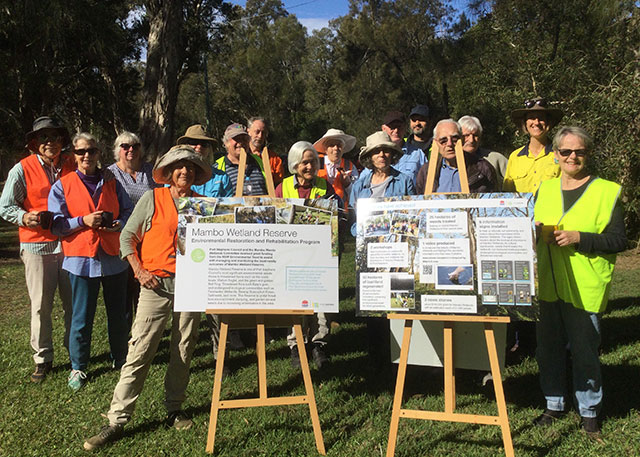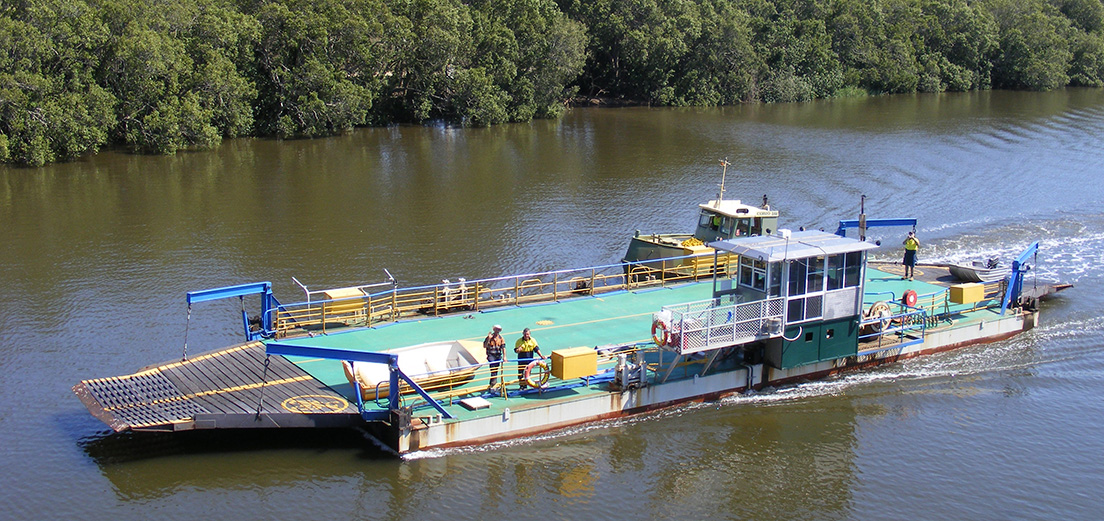One of Port Stephens most significant environmental assets, the Mambo Wetlands has undergone a 2 year rehabilitation program, which has seen more than 1,200 trees planted and 25 hectares of weeds removed.

In 2019, Port Stephens Council and the Mambo Wanda Wetlands Committee received a NSW Environmental Trust grant and have since undertaken a program of activities to restore the health of the wetlands.
Environmental Operations Team Leader Jordan Skinner says the achievements of the program are all thanks to the hard work of local volunteers.
“In a short time, Council and the community has transformed the Mambo Wetlands – treating 25 hectares of weeds, regenerating 50 hectares of bushland and planting 1,200 native trees,” Mr Skinner said.
“We’ve also held 2 community workshops and produced 3 educational videos that focus on the incredible wetlands and the wonderful volunteers who dedicate their time to protecting and enhancing this asset.
“The 6 information signs we’ve installed at the wetlands also help to educate our community and visitors about the ecological importance of Mambo Wetlands, its cultural significance, the weeds that threaten the wetlands, our treasured koala population, endangered ecological communities and threatened animals,” he added.
In October this year Council held a free native plant giveaway, encouraging neighbouring properties to play their part in protecting the wetlands.
“The Native Plant exchange was a huge success with 220 free plants being delivered to residents surrounding the wetlands. We know using native plants in your garden helps us protect the Mambo wetlands by attracting native wildlife and reducing the spread of introduced plants,” Mr Skinner said.
Mr Skinner says Council is always looking for volunteers to support the Mambo Wetlands Committee.
“The Mambo Wetlands are a precious part of the Port Stephens environment. They play a crucial role in maintaining the health of the port – filtering water, providing a nursery for fish and crustaceans, and a vital food source for birds, insects and other native animals,” Mr Skinner said.
“We want Mambo Wetlands to be around for future generations to enjoy. We already have a dedicated group of volunteers who meet for a monthly working bee – but we’re always looking for more people to help,” he added.








